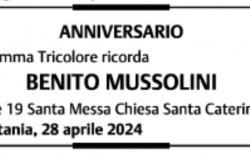The Municipality of Genoa is the most virtuous in Italy in the fight against tax evasion and avoidance of large state taxes: in the last year it received a contribution from the State for its activity to combat tax evasion amounting to 863,459 euros, more than double that of Milan with 367,410, quadruple of Turin with 162,672, above Prato with 147,243 and Bologna with 99,555. Zero in Imperia and Savona. And in the other municipalities the music does not change.
In reality, this is not exactly good news given that the national data are rather disappointing: 6 million euros recovered, practically equal to 0.007 percent of the 90 billions (data from the Revenue Agency) in total that tax offenders unduly withhold every year. And in Liguria the situation, apart from Genoa, is serious: La Spezia is in 31st position in the national ranking with solos 2,560 euros recovered, while the municipalities Savona and Imperia have not recovered anything.
These are the data released by the research office of Cgia of Mestre which analyzed the action of Italian Municipalities in an anti-evasion key relating to state taxes, such as Irpef, Ires, VAT, registration/mortgage and cadastral taxes.
“Not paying taxes is stealing….” the president recalled Mattarella in multiple circumstances. It steals from everyone and from those who ‘cannot escape’ (see fixed income and pensioners in particular). If everyone paid as happens in the most diligent nations, the vast majority would end up paying everyone less. It surprises almost no one to read that there are even city councilors who report incomes of poor people (like 2/3 thousand euros a year). If in fact the State does not collect, it ends up saving in the public budget, as has happened in Italy for years, to the detriment of essential services such as Healthcare, School, Justice, but also Research. And the flight is growing due to low salaries of young graduates and others.
The Liguria Region can announce:
27 MARCH 2024 – TAX: PRESIDENT TOTI, “SATISFIED WITH THE CLEARANCE OF A MOST IMPORTANT TAX REFORM IN FAVOR OF OVER 800 THOUSAND LIGURIS”
PRESS RELEASE – GENOA. “We are very satisfied with the definitive green light from the Regional Council to the fiscal maneuver proposed by the Council: it is the most important in recent years because it guarantees more money in the pockets of thousands of citizens, over 800 thousand people, and meets an elementary criterion of equity, leaving more resources to the most fragile families”. Thus the president of the Liguria Region and budget councilor Giovanni Totiregarding the definitive approval by the Regional Council of the bill on the reduction or elimination (for incomes up to 28 thousand euros) of the regional increase on the additional Irpef for approximately 800 thousand Ligurians with a saving on the tax levy which goes from 50 to 150 euros per year.
“This maneuver is the result of discussion with the trade unions – he recalls Toti -. We believe that it will also provide support for regional internal demand, with a positive effect on growth and employment.”
Pending the process of reorganizing the taxation of local authorities, using the window granted by the government until 15 April for the remodulation of the income brackets, the Liguria Region has adapted its tax system to that adopted by the government, merging the first two income brackets income: for 2024 the elimination of the regional increase on incomeIrpef, until now foreseen in Liguria for incomes up to 15 thousand euros, extends to all taxpayers with an income up to 28 thousand euros, regardless of the composition of the family unit, with a clear reduction in the tax burden on low-medium income groups. The benefit deriving from this regulatory change also partly maintains its effects on taxpayers in the next income bracket due to the progressive nature of the tax system. Only taxpayers with incomes starting from 65 thousand euros (4% of the total) will have a moderate and progressive increase in the levy, not exceeding approximately 130 euros per year.
“We certainly cannot act on the overall tax burden, which is the responsibility of the government, but this does not exempt us from implementing interventions on regional taxation to support the segments of the population most in difficulty, reducing taxes for families who have seen their standard of living most affected by inflation. This maneuver also leaves firm the principle of fiscal progressivity which is sacrosanct. In essence, while the 95% of the Ligurians will pay something less, those with incomes above 65thousand euros, or 5% of Ligurian taxpayers, will pay a little more”.
The president then underlined that this maneuver “is consistent with the other actions we have implemented this year in favor of, essentially, the same segments of the population. I am referring to the free regional rail transport for all students up to 19 years of age and the 50% discount up to 26 years of age and the free nursery school for thousands of children, with evident positive effects also from an employment point of view. I truly believe that we have largely recovered the loss of purchasing power that affected families due to inflation and I also believe that Liguria is the most advanced region in terms of actions to support the most fragile incomes”.
But we are sure if only the 5% of Ligurian residents, as the Region reminds us, have an income above 65 thousand euros gross per year? Let’s take, for example, the successful category of seaside resorts. They report to the tax authorities an average of 24,300 euros per year. Their ‘lifeguards’ and above all thousands and thousands of employees earn more. But there is no point in crucifying a single category that does not suffer a crisis, not even in times of Covid one might say. And it can only be positive for the tourist economy. Even if it doesn’t always go better for other categories of the sector (see hotels with unstoppable closures and transformations into accommodation, total or partial). Are we really moving towards fiscal equity among the 800 thousand ‘favourites’ indicated by the Region?









